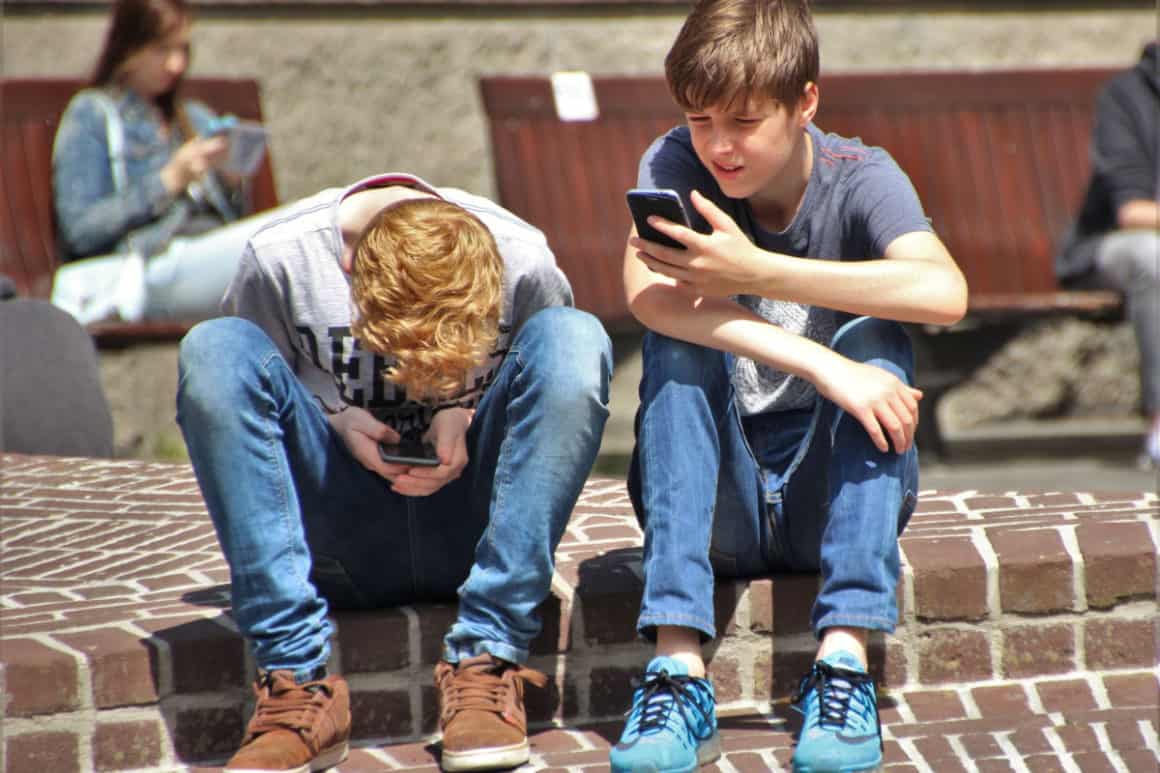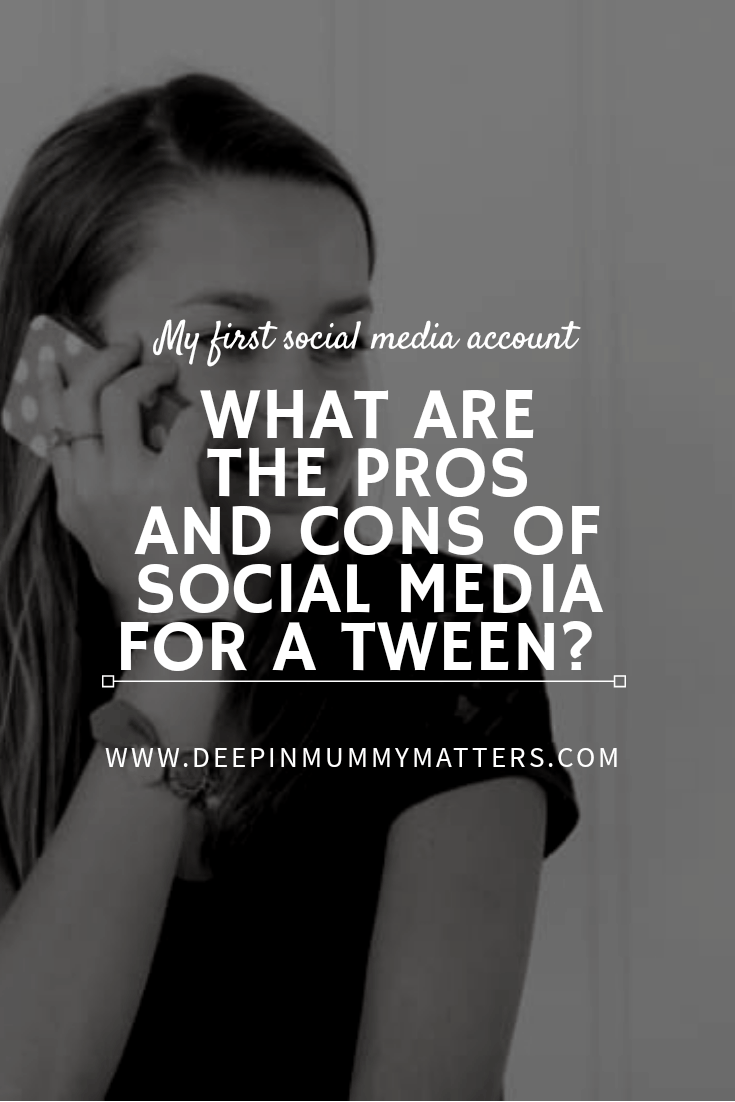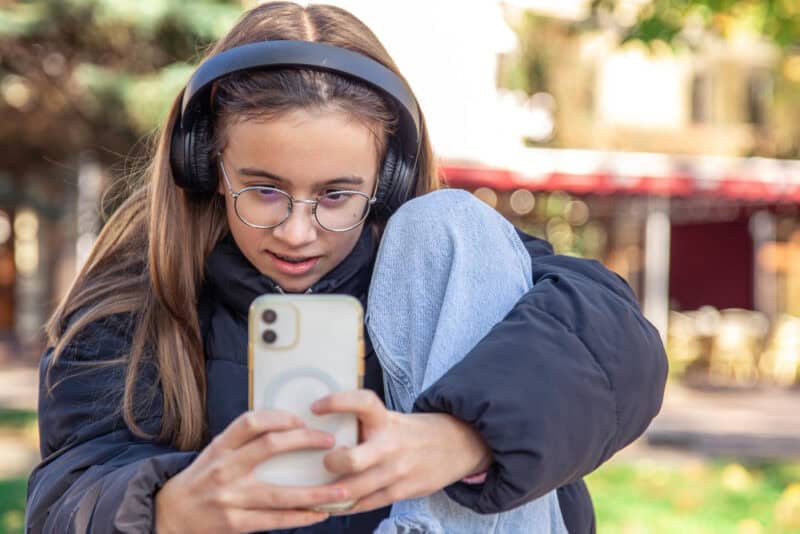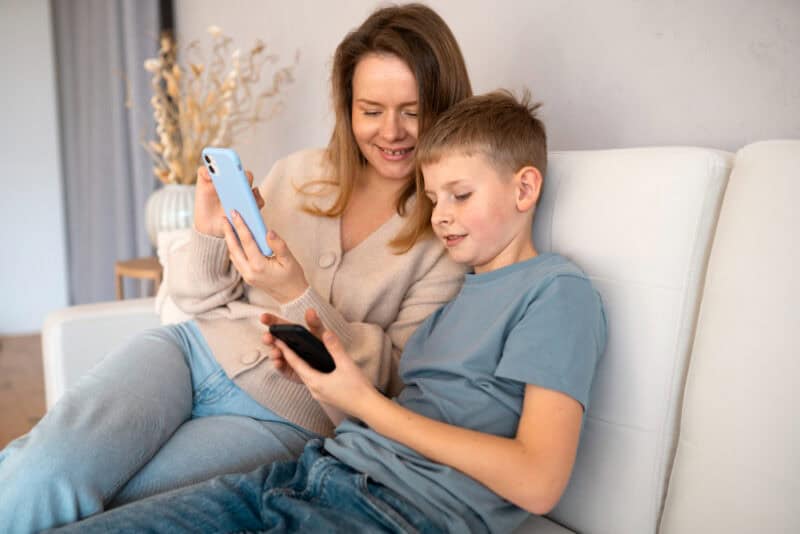As the parent of a tween who regularly asks for her first social media account, I wanted to be able to answer her question with full knowledge of my decision. For that reason, I reached out to online advice and support company InternetMatters.org to ask for the expert advice of Ghislaine Bombusa, Head of Digital, to give me the lowdown.
Social networks are a great place for young people to connect with others and express their online identity. Despite this, answering the question, ‘Can I have a social media account?’ is one of the areas parents tell us they find difficult.
The online world can be intimidating for parents and it’s therefore important that parents familiarise themselves with some simple tips to ensure that their child is navigating the online world safely, knowing how and when to ask for help and advice.
Of course, we need to consider the amount of screen time our children are exposed to as well, and ensuring that they have the correct type of eyewear and are using it to avoid eye health issues as well, but keeping safe online is a high priority.
There are a number of things to consider before your child goes social:
The minimum age for a large number of social media platforms is 13+, but research suggests that those as young as ten are active on social media apps – it is therefore important to think about the type of content they are likely to see on the app and whether it’s age-appropriate.
It’s important to show them that you understand the need for them to connect with friends to maintain relationships, but make them aware that it’s easy to say something online that may be misunderstood by friends and cause issues in real life.
Also, as with peer-pressure before the digital age, it can push you to do things you wouldn’t simply to fit in so it’s important to help them understand that it’s okay to say no if something doesn’t feel right.
Are they well prepared for the risks they may face?
Social media offers children the opportunity to express themselves and access support systems to help build their identity, but it can also open them up to issues around sexting and cyberbullying, to name a few.
Before letting them loose on social, make them aware of the issues they may encounter on social media, what steps they can take to deal with them and where to go for help if they are feeling overwhelmed. Organisations like Childline and Young Minds offer helplines and forums to give children one-to-one advice if they run into difficulties.
HOW CAN MY CHILD BENEFIT FROM BEING ACTIVE ON SOCIAL MEDIA?

Collaborative learning
Children can learn and appreciate different perspectives and worldviews to better understand the world around them and build up their knowledge on a range of topics. With so many ideas shared across a number of platforms, they can discover areas of interest and use the platforms in an educational capacity.
Digital media literacy
Due to the growth of social media within everyday life, it is important for children and young people to learn how to communicate within the online world. This will help them to prepare for future job opportunities and support them in interacting with friends and family.
Mental health and wellbeing
Real-world communication can be proven difficult for some children, making it difficult for them to maintain connections. Social media can act as an alternative way of meeting people, removing the intimidating barrier of real-life communication. It can also be a great way to connect with people that share similar ideas and interests to them.
Strengthen relationships
Being able to communicate with family members or friends who may live far away or moved from a local is a huge benefit of social media. It allows them to maintain these relationships and communicate with important people in their lives with ease.
A place to seek support
It can allow children to offer support to their friends and family who may be experiencing a particular issue. On the other hand, it can also be a place where children can seek support if they are going through some difficult issues that they don’t feel comfortable talking to those around them about.
Social media can help young people raise awareness for a particular cause they are passionate about in order to have a positive impact on the world. For example, they could fundraise for a particular charity they are interested in.
Develop a positive digital footprint
Young people can also use their accounts as bespoke CVs to share their achievements, showcase their talents and build a positive online portfolio that can open them up to job opportunities in the future. For example, if they have an interest in photography, Instagram can be a good platform to showcase their work.
HOW DO I HELP MY CHILD NAVIGATE THE POTENTIAL PITFALLS?
Are they sharing inappropriate selfies?
It is likely that your child doesn’t know the extent of the consequences this may have if this is their first social media account. Discuss the reasons why they feel the need to share such images and the potential long-term impact this could have on them if the pictures are used without their consent.
Set some boundaries for your children and stick to them. It’s best to give their eyes half an hour’s rest from the screen before bed, so make sure to factor that in. If it helps, tell your child that you are putting your mobile or tablet away, too – your children are more likely to mirror your actions if they see you doing it as well. Agree on a few house rules on when and how long they can go online, which sites they should visit, or what apps they are allowed to download.
Are they sharing their location through apps?
It can be dangerous for young people to be sharing their location with people they don’t know online for obvious reasons. Ensure geo-location is disabled on your child’s device in order to keep their whereabouts private. Explain why it’s important that they never share personal information with people they don’t know online and check this regularly.
Have they posted too much personal information online?
Sharing too much information can cause a threat to your child. It is important to discuss with them who they’ve shared the information with and assess the risk it poses to your child. You can alter the privacy settings and control who has access to your child’s information or ask them to remove it from their account.
Are they chatting to strangers online?
It’s one of the most common questions we’re asked and there are some preventative steps you can put in place. Make sure your child understands that people may hide behind fake profiles for dishonest reasons and the person they’ve been chatting to could easily be someone with bad intentions.
Are they gaming with strangers online?
Playing games can be fun and have a positive impact. However, you should ensure your child understands that people may hide behind fake profiles for dishonest reasons. You should learn how to block and report anything offensive and teach your child how to look out for signs of them being fake profiles.
Do they have hundreds of followers?
This can be an issue as you can’t keep control of who is viewing your account and, subsequently, your information. Explain to your child that some people may not be who they say they are and that it is important to only share information with people you know. Privacy settings can help put in control of who they talk to – for example, having a private account allows you to accept a follow request only from people that you know.
Remind your child that these images are their personal digital footprint for years to come and advise them to use settings that only let them share with friends they know. If they’re not comfortable wearing it on their T-shirt, they shouldn’t put it online.
Are they at risk of being cyberbullied?
The first and most important thing to do is give them your full emotional support – your child is most likely feeling rather upset and vulnerable. There are also further steps you can take to help your child; cyberbullies are looking for a reaction, so you should advise your child not to reply to them in any way; sit down with your child and record what’s happened, logging texts, printing emails or taking screenshots; block the bullies by removing them as a ‘friend’ or blocking their calls and messages; don’t deny your child access to technology – one of the main reasons children don’t report cyberbullying is because they fear their device will be taken away from them, so moderate your child’s use of the phone or tablet instead.
Talk together about peer pressure and how screens and anonymity can lead to behaviour that is hurtful. Remind them there’s a fine line between sharing content because it’s funny or might get lots of ‘likes’ versus the potential to cause offence or hurt. They wouldn’t treat others that way in real life, so it is no different doing it online.
Encourage them to think about why friends may share certain posts. Show them how to gently challenge their friends if they find their content offensive. Remind them they can always talk to you about things happening online. If the content is offensive, you can report it to the social platform and get it removed.
Social media companies such as Twitter, Facebook and Instagram have strict age restrictions in place already – you’re currently not allowed to use those apps if you’re under 13 years old. Of course, children will be curious to use those sites before that age, but we recommend sticking to those guidelines. At that age, kids will have a better understanding of the world around them, what is appropriate to post and who they should and shouldn’t be talking to.
Author Bio: Ghislaine is responsible for managing the social media channels and working closely with our e-safety experts to develop content that helps to educate and inform parents on e-safety issues. She is passionate about all things social and is heavily involved in creating and sharing the best resources available for parents through our social media channels to get parents talking and sharing their real-life experiences.





My boy is only 2, so not worrying about this yet! But I know a lot of sites say you have to be at least 13, but sometimes i think that’s still a bit too young! Caitylis x x
I feel like 13 is too young too, I see the effects that simple messages and group chat have on her, nevermind what a social media app would be like x
x
I can’t imagine having had all of this at 13! It all seems a bit overwhelming!
I know exactly where you’re coming from, I certainly don’t feel like I felt left out when I was 13 in not having a phone!
My eldest child is only four years old, but this is something I really worry about already! Social Media seems like such a big thing to protect our children from and despite being on it myself I feel like I don’t know the risks. I am dreading the day that my children want social media themselves!
Isaac is 11 and has tic tok and instagram. I love his posts on tic tok but I do monitor him closely on both platforms
My little lady is five at the moment so I’m not too worried about that. But its definitely something that worries me.
Lots of good information here, I think keeping the conversations going and them being able to speak to you about the things they see is super important.
we always have to discipline their use of social media, it is good but in moderation and we need tk educate them with that
Yes I completely agree.